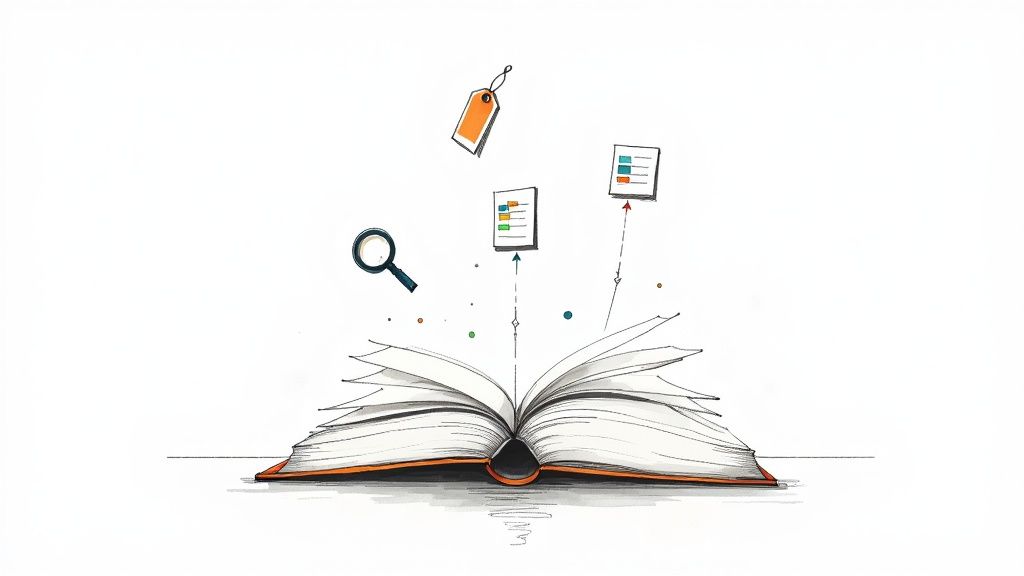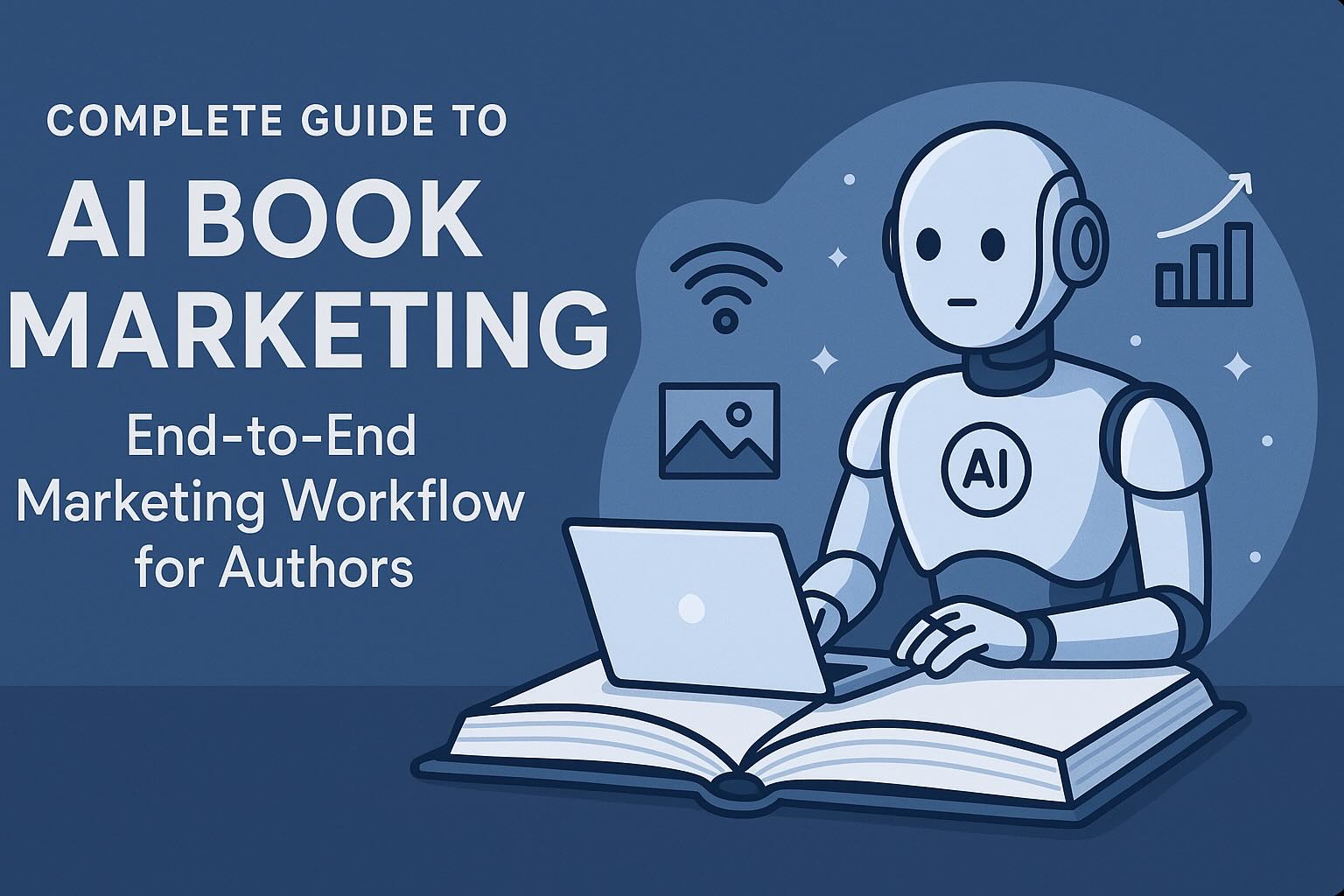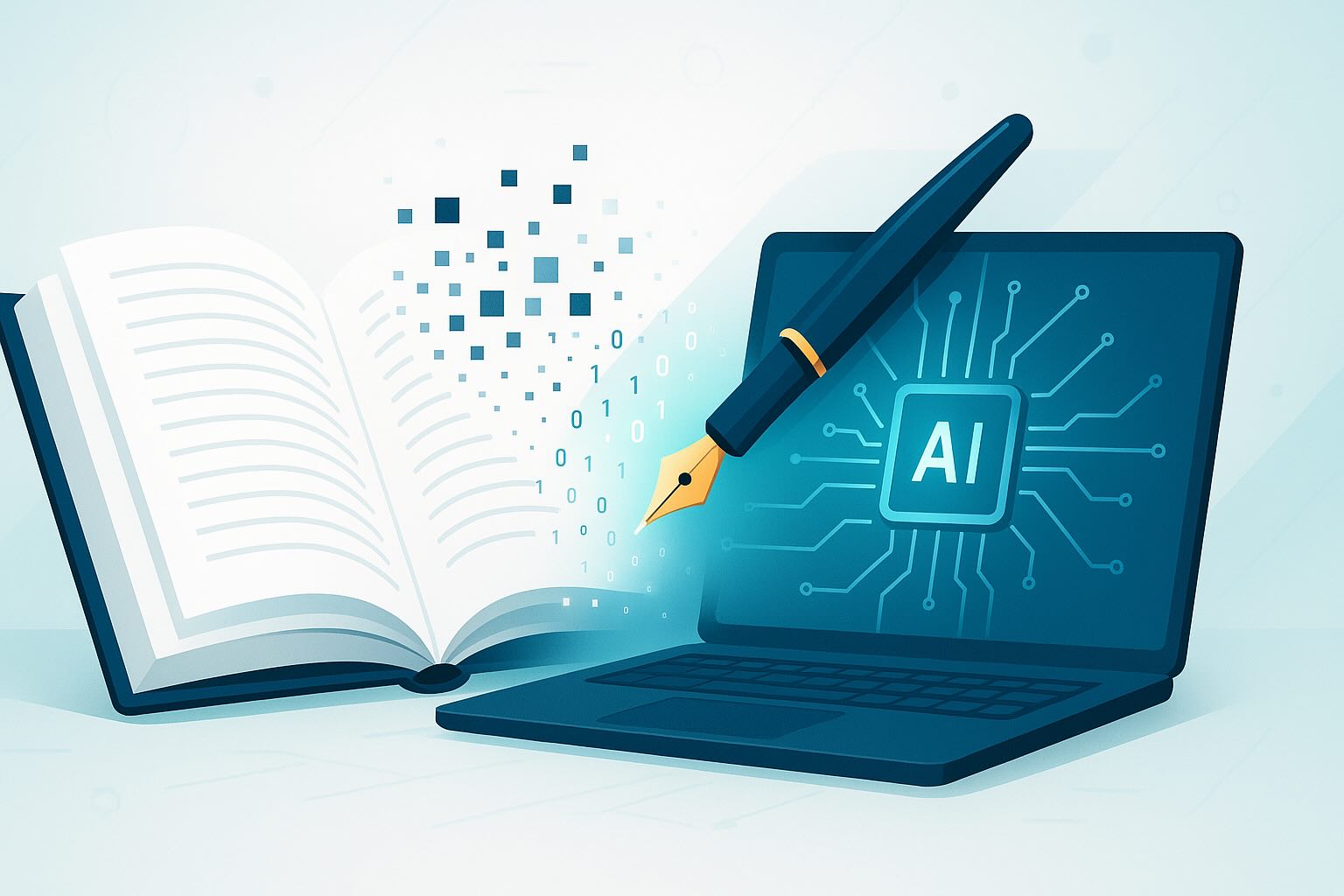AI Book Marketing: 7 Proven Tactics + Best Tools Guide (2026)

Quick Answer
How can AI revolutionize your book marketing? AI book marketing can increase engagement rates by 70% while reducing manual work by up to 50%. Top recommendations:
- ManuscriptReport.com - Complete marketing reports in 10 minutes ($34.99+)
- Social Media Automation - Schedule and optimize posts automatically
- AI-Powered Personalization - Target readers with 35% higher conversion rates (Amazon's success rate)
🎯 Part of Our AI Marketing Series: This article provides 7 proven tactics for book marketing. For the complete end-to-end marketing workflow covering pre-launch strategy, launch execution, and long-term growth, see our comprehensive Complete Guide to AI Book Marketing.
AI Book Marketing: 7 Proven Tactics + Best Tools Guide (2026)
According to Statista, the global book market was valued at approximately $143 billion in 2022, yet many authors struggle to reach their target audience effectively. Recent studies reveal that over 70% of marketers experience significantly higher engagement rates when using artificial intelligence, and this trend is reshaping how books are promoted.
For many indie authors, the challenges of limited budgets, intense competition, and time-consuming manual tasks can stifle their promotional efforts. Traditional methods often struggle to pinpoint the right audience while juggling multiple responsibilities—from drafting compelling content to managing social media campaigns.
AI for book marketing provides a game-changing solution by leveraging smart book marketing automation to handle repetitive tasks and harness data-driven insights. These AI marketing strategies for books not only streamline workflows but also empower authors with precision-targeted campaigns that resonate with readers. Amazon's recommendation engine, powered by AI, demonstrates this power—35% of their sales come from their recommendation system alone.
By integrating innovative AI book marketing techniques, authors can focus more on their storytelling while technology takes charge of audience engagement, ultimately transforming the path to success in the ever-evolving literary marketplace.
Understanding AI in Book Marketing
Artificial intelligence (AI) is revolutionizing the way authors market their books. At its core, AI involves computer systems that can perform tasks typically requiring human intelligence, such as data analysis, pattern recognition, and decision-making. When applying these capabilities to book marketing, the term "AI for book marketing" encompasses a range of tools—from AI-driven content creation to automation software that streamlines digital campaigns.
For a detailed comparison of the best AI tools for authors covering writing, editing, and marketing, see our comprehensive AI tools guide. Indie author marketing, in particular, has benefited from these innovations, allowing writers to focus on creativity while technology handles complex marketing tasks.
Current trends in AI book marketing underscore its growing influence. For example, many marketing professionals now employ machine learning algorithms to predict reader behavior and optimize ad spending. According to recent insights from the Amazon Kindle Direct Publishing (KDP) guides, authors using data analytics and personalization see conversion rates increase by up to 30%. These statistics highlight how AI marketing strategies for books can lead to substantial improvements in campaign effectiveness. Additionally, platforms like Reedsy provide invaluable resources and case studies that demonstrate successful use cases of book marketing automation, making it easier for authors to adopt these techniques.
One major benefit of integrating AI in marketing strategies is enhanced efficiency. Automation tools can analyze vast datasets in real time, enabling authors to execute targeted campaigns without the traditional manual workload. This results in more effective audience engagement and ultimately boosts sales. AI-driven applications can also tailor messaging across various channels, ensuring that each reader segment receives content that resonates with their unique interests. As a result, even first-time indie authors can leverage solutions that were once reserved for large publishing houses.
In essence, understanding AI in book marketing means recognizing its potential to transform how you engage your audience. By integrating methods backed by statistics and proven practices from experts like Amazon KDP and Reedsy, you can pave the way for a more innovative and efficient marketing approach.

7 Proven AI Tactics for Effective Book Marketing
Artificial intelligence is revolutionizing how authors and publishers approach book marketing. By adopting AI for book marketing, you can streamline tedious tasks and focus on crafting captivating narratives. Here are seven actionable AI tactics that not only enhance your promotional efforts but also save time and increase overall efficiency.
Subscribe & Get Your Free Marketing Plan Template
Receive regular updates on marketing best-practices, AI shortcuts, and get our proven 4-phase marketing roadmap for free.
Unsubscribe anytime.
Social Media Automation
Engaging your audience on platforms like Facebook, Instagram, and Twitter is essential. AI-enabled tools can automate social media scheduling and manage interactions, ensuring consistent posts that resonate with your readers. These platforms monitor engagement metrics in real time, allowing you to tweak post timings and content style. For instance, an indie author can use AI-based scheduling software to target key demographics during specific events or holidays while reducing manual effort.SEO Keyword Analysis
Finding the right keywords is pivotal for your online presence. AI tools can analyze millions of data points to identify trending keywords relevant to your genre. With AI book marketing solutions, authors can pinpoint target phrases that improve search rankings, enhancing visibility on platforms like Amazon and Google. This tactic is particularly useful for book marketing automation, as it minimizes guesswork, allowing you to prioritize the keywords that drive traffic to your book landing pages.AI-Based Content Creation
Creating fresh and engaging content consistently can be daunting. AI marketing strategies for books now include content generators capable of drafting blog posts, social media updates, and press releases. These tools not only maintain your brand voice but can also adapt to reader feedback. For example, authors can use AI to create compelling blurbs or narratives that resonate with different segments of their audience, ensuring that each piece of content is tailored and impactful.Customer Segmentation
A one-size-fits-all approach is rarely effective in book marketing. AI can analyze reader behavior and demographic data to segment customers accurately. This segmentation allows you to craft personalized messages and promotions targeted at specific reader groups. Whether you’re an established publisher or an indie author, using AI-driven segmentation ensures that each promotional campaign reaches only the most relevant audience, resulting in a better return on investment.Personalized Email Campaigns
Email remains a powerful channel for book marketing. AI assists in sending personalized emails that reflect an individual’s reading habits and preferences. By leveraging AI for book marketing, you can automate campaigns that adjust content based on user engagement. For example, an automated follow-up email might include personalized recommendations or special offers that speak directly to the reader’s interests. This tailored approach not only nurtures relationships but also increases conversions.Trend Analysis
Keeping up with industry trends can make the difference between a successful campaign and one that misses the mark. AI tools can instantly process data from various sources, identifying shifts in reader preferences and emerging genres. This real-time trend analysis enables you to adjust your marketing strategy, ensuring that your book remains relevant. Authors can use this data to align their writing and promotional strategies with current market demands, fostering a stronger connection with their audience.Ad Optimization
Paid advertising often requires constant tweaking to achieve optimal performance. AI ad optimization tools can manage your ad spend across platforms like Google Ads and social media channels by analyzing various metrics and adjusting bids automatically. This ensures that your campaigns run efficiently, targeting the right audience segments and maximizing return on investment. When you combine ad optimization with solid keyword strategies, every marketing dollar works harder to boost your book’s visibility.
One innovative tool that integrates several of these strategies is ManuscriptReport.com. This platform offers comprehensive book reports—including summaries, synopses, blurbs, comparable titles, keywords, SEO tips, and much more—delivered in approximately 10 minutes. By using ManuscriptReport.com, authors and publishers can streamline many of these AI tactics, notably reducing the time spent on marketing and allowing more focus on creating remarkable content. You can explore its detailed offerings at https://manuscriptreport.com.
By embracing these AI strategies, you’re not just keeping up with modern marketing trends—you’re setting the pace. Whether your goal is to boost online visibility through precise SEO or engage readers with personalized email campaigns, AI for book marketing is the catalyst that will transform your promotional efforts. The future of book marketing is data-driven, and adopting these tactics ensures that you’re ahead of the curve in a competitive industry.

Integrating AI Tools into Your Marketing Workflow
Adopting AI for book marketing into your existing workflow starts with assessing your current processes. Begin by identifying repetitive tasks that consume time—such as generating book summaries, optimizing SEO keywords, or crafting ad copy—and determine which aspects can benefit from automation. Next, research AI tools that align with your marketing needs. For instance, tools like ManuscriptReport.com can deliver comprehensive book reports in about 10 minutes, providing summaries, synopses, blurbs, and even targeted sales pitches. Integrating such features can streamline your workflow and let you focus more on your creative process.
Once you’ve selected an AI tool, establish clear, measurable goals. Define key performance indicators (KPIs), such as an increase in organic search traffic, higher conversion rates, or improved audience engagement. Set a realistic timeline—for example, a 30-day trial period can help you assess the impact of the AI integration before fully committing to a long-term strategy. Evaluate the tool’s contribution to your overall book marketing automation and adjust your budget accordingly. Industry success stories reveal that many indie authors have seen as much as a 20% boost in audience engagement by embracing AI marketing strategies for books, underscoring the efficiency and tangible benefits of this approach.
The next step involves planning actionable steps for a smooth implementation. Start small by integrating AI into one segment of your workflow, then gradually expand to other areas as you become more comfortable with the technology. Keep track of performance data and regularly update your strategy based on measurable results. Best practices suggest maintaining a balance between technological integration and human oversight to ensure the quality and authenticity of your marketing content. With a focused approach, tools like ManuscriptReport.com can effectively automate key marketing tasks, enabling you to spend less time on routine work and more time refining your book and engaging with your audience.

Measuring the Success of Your AI-Powered Marketing
Tracking key performance indicators (KPIs) is essential for understanding the effectiveness of your AI for book marketing campaigns. By monitoring metrics like click-through rates, conversion rates, and engagement levels, you gain valuable insights into how your target audience interacts with your content. For instance, a high click-through rate on email campaigns can indicate that your subject lines are compelling enough to drive interest, while conversion rates reveal how successfully visitors are turning into readers.
Tools such as Google Analytics and AI-powered platforms like HubSpot help track these metrics by providing real-time data. These platforms allow indie authors and larger publishers alike to analyze where potential customers drop off, so you can tweak your approach accordingly. In addition, marketing automation tools designed for book marketing can streamline the process by automating data collection and providing detailed reports that break down reader behavior, engagement, and conversion trends.
A/B testing is another crucial strategy for refining your tactics. By comparing two versions of a landing page or email, you can determine which elements work best. For example, experimenting with different call-to-action phrases or cover designs might reveal significant differences in reader engagement. Iterative improvements based on these test results ensure that your campaigns become increasingly effective over time.
Ultimately, measuring performance isn't a one-time task. It's an ongoing process that requires regular monitoring and adjustment. Using AI marketing strategies for books, you can continuously refine your campaigns based on solid data and feedback, making your book marketing automation not just efficient but also smarter and more responsive to reader behavior.
AI-Powered Personalization in Book Marketing
Amazon's recommendation engine has become the gold standard in personalized book marketing. According to Amazon's own reports, 35% of their sales come from their recommendation system. This demonstrates the powerful impact of AI-driven personalization in connecting readers with books they're likely to enjoy.
Major publishers are increasingly adopting AI-powered systems that analyze reader behavior, including:
- Reading history and preferences
- Browse and purchase patterns
- Genre interests
- Price sensitivity
- Reading completion rates
AI in Pricing Strategy Optimization
Major publishers are increasingly using AI-powered dynamic pricing strategies. According to a McKinsey study, companies using AI for pricing optimization can see revenue increases of up to 10%.
Key benefits of AI-driven pricing include:
- Real-time market analysis
- Competitive pricing optimization
- Seasonal adjustment capabilities
- Regional price optimization
- Format-specific pricing strategies
Essential AI Book Marketing Tools
Choosing the right tools is crucial for success. Here are the top AI-powered platforms that can transform your book marketing:
1. ManuscriptReport.com
ManuscriptReport.com stands out as a premier all-in-one platform among AI book marketing tools, designed to transform a finished manuscript into a complete, publisher-ready marketing kit. Its core strength lies in its ability to generate a comprehensive, 15-section marketing report in about 10 minutes.
Key Features:
- Comprehensive marketing reports with blurbs, loglines, SEO keywords
- Content repurposing engine for blog posts and social media
- Market positioning insights with comparable titles analysis
- Pricing starts at $34.99 per report
2. AI-Enhanced Social Media Marketing
According to Hootsuite's Digital 2023 Report, businesses using AI-powered social media tools see significant improvements in:
- Post timing optimization
- Content engagement
- Audience targeting
- Campaign performance tracking
- ROI measurement
3. AI Tools for Analyzing Reader Sentiment
Modern AI-powered sentiment analysis tools help publishers and authors understand reader reactions by analyzing:
- Book reviews
- Social media mentions
- Online discussions
- Reading platform data
- Sales patterns
Tools like ManuscriptReport.com democratize these capabilities, giving independent authors access to the same kind of sentiment analysis that major publishers use to fine-tune their marketing strategies.
Tailoring AI Strategies: Indie Authors vs Publishers\n\nWhether you're an independent author or a publisher managing multiple titles, AI offers tailored solutions. Recent statistics show that over 65% of marketing professionals now incorporate AI into their campaigns.\n\n### For Indie Authors: Maximizing Reach with Limited Resources\n\nIndie authors often wear multiple hats – writer, editor, marketer. AI acts as a powerful virtual assistant:\n\n- **Time-Saving Automation:** Generate content using AI assistants like ChatGPT or Jasper.ai, cutting creation time by nearly 50%\n- **Mastering Metadata:** Use AI to analyze successful books and suggest relevant keywords for Amazon KDP\n- **Content Repurposing:** Transform your manuscript into diverse marketing assets automatically\n- **Compelling Copy:** Generate persuasive ad copy tailored to different reader segments\n\n### For Publishers: Scaling Operations and Market Insights\n\nPublishers need scalable solutions and robust market intelligence:\n\n- **Market Trend Analysis:** Process datasets to identify emerging reader trends and competitor strategies\n- **Marketing Collateral Creation:** Generate standardized materials quickly while maintaining brand consistency\n- **Optimized Advertising:** Leverage AI in Amazon Ads, Facebook Ads, and Google Ads for better ROI\n- **Data-Driven Decisions:** Use AI reports to analyze manuscript potential and identify target audiences\n\n## Frequently Asked Questions
How can AI improve book marketing strategies?
AI for book marketing transforms traditional promotion methods by enhancing targeting precision, saving authors valuable time and delivering data-driven insights. Using AI algorithms, publishers can identify niche audiences effectively, tailoring campaigns to reader preferences. For example, studies show that campaigns using AI strategies achieve up to 30% higher conversion rates compared to conventional methods. This automation relieves indie authors from repetitive tasks, allowing more focus on creative pursuits. Data analysis tools further refine marketing budgets by tracking ROI in real time. With these advanced tactics, both established and emerging authors gain a competitive edge in a rapidly evolving digital marketplace.
What are the best AI tools for authors?
Authors leveraging AI for book marketing benefit from tools that automate tasks and enhance outreach. Popular solutions include ChatGPT for generating engaging content and Jasper for ad copy, streamlining the creative process. Data analytics platforms, like Google Analytics, further track reader engagement and campaign success. Moreover, sites like ManuscriptReport.com specialize in automating and optimizing book marketing strategies for indie authors by offering targeted insights and performance metrics. Studies indicate that AI-enhanced marketing can boost conversion rates by up to 30%. By integrating these tools, authors save time and focus on crafting memorable stories for diverse reader communities, delivering outstanding value.
Is AI suitable for indie authors with limited budgets?
AI for book marketing offers indie authors cost-effective, scalable solutions that grow with their budgets. By automating social media scheduling, email outreach, and audience analysis, AI marketing strategies for books reduce manual work while delivering impressive results. Data-driven platforms increase efficiency, allowing authors to track campaign performance and optimize outreach without expensive agencies. Even small-scale AI implementations can boost visibility and drive sales through precise targeting and smart recommendations. Statistics show that automated book marketing can reduce costs by up to 30% while increasing engagement. Indie authors can harness these affordable tools and techniques to compete in a crowded market.
How do I measure the effectiveness of AI marketing efforts?
Measuring the effectiveness of AI marketing for book marketing is key. Book publishers and indie authors can track ROI, engagement metrics, and conversion rates to gauge performance. Using tools like Google Analytics, you can assess which strategies drive clicks, reads, and sales. For instance, book marketing automation systems have reported improvements of 15–20% in conversions by providing valuable insights into audience behavior. It is crucial to analyze progress weekly or monthly to refine tactics. Furthermore, using dashboards and performance reports simplifies tracking KPIs simultaneously. These tools provide a real-time snapshot of interactions and sales performance, allowing authors to make data-driven decisions.
The Future of AI in Book Marketing
According to the Publishers Association, the publishing industry is increasingly investing in AI technologies to improve marketing effectiveness and reader engagement. Major publishing houses are incorporating AI tools for:
- Market analysis
- Content optimization
- Reader engagement tracking
- Marketing automation
- Sales forecasting
AI is transforming book marketing by providing data-driven insights and automated solutions. While the technology is still evolving, early adopters in the publishing industry are already seeing measurable improvements in their marketing effectiveness and reader engagement.
Ready to explore how AI can enhance your book marketing strategy? Start with ManuscriptReport.com to access powerful AI tools that were once only available to major publishers, and stay competitive in today's digital marketplace.
Enjoyed this article? Subscribe for more + get a free marketing roadmap template.
Receive regular updates on marketing best-practices, AI shortcuts, and get our proven 4-phase marketing roadmap template for free.
Unsubscribe anytime.
Related Articles

Top Affordable Book Marketing Services for Authors 2026
Explore our list of affordable book marketing services to help authors boost visibility and sales without breaking the bank. Find your ideal option today!

Complete Guide to AI Book Marketing: End-to-End Marketing Workflow for Authors (2026)
Master the complete AI-powered book marketing workflow from launch strategy to long-term sales. This comprehensive guide covers every stage with tools, proven tactics, and real ROI data to help you market smarter in 2026.

Complete Guide to AI-Powered Book Publishing: End-to-End Workflow for Modern Authors (2026)
Master the complete AI-powered book publishing workflow from editing to marketing. This comprehensive 5,000-word guide covers every stage with tools, strategies, and real ROI data to help you publish smarter in 2026.